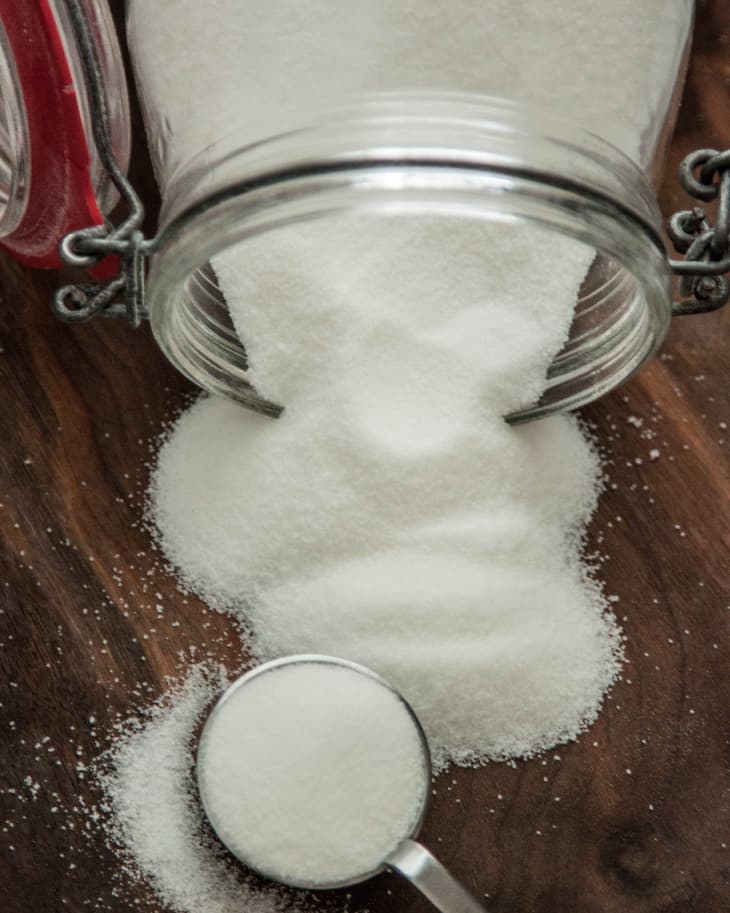A New Study Corroborates the Dangerous Link Between Sugar & Cancer
We all know we’re not supposed to eat too much sugar. It’s bad for our teeth, say our dentist. It’s bad for our waistlines and our hearts, say our doctors. But some scientists are now saying too much sugar is also bad for us on a much more molecular level; sugar may trigger the growth of cancer cells.
The Sugar-Cancer Connection
All human cells, even cancerous ones, require energy to grow. This energy often comes from the glucose, present in the foods we eat and metabolized to create new cells. But while normal cells are good at regulating the amount of glucose they take in, cancer cells are hungry buggers, gobbling up glucose at an insatiable rate and reproducing just as fast.
The more glucose the bad cells take up, the more the bad cells grow. This phenomenon is known as the Warburg Effect and it occurs in up to 80 percent of cancers. In fact, the association between the Warburg Effect and cancer is so significant that consumption of extra glucose is the basis for one of the most important diagnostic tools, the positron emission tomography, or PET.
So, does that mean if you cut the sugar, you’ll cut off the food supply? Not exactly. Not only are sugars present in all foods with carbohydrates, from Halloween candy to more virtuous carrots, our normal cells (and therefore we) need glucose to survive.
Researchers are looking to find a way to stop the growth of tumors by blocking energy production in cancer cells without starving regular cells, but a magic pill is a long way off. One of the biggest hurdles is the fact that cancer cells aren’t picky. In a 2016 article in the New York Times, Dr. Chi Van Dang, director of the Abramson Cancer Center at the University of Pennsylvania, said, “You block glucose, they use glutamine. You block glucose and glutamine, they might be able to use fatty acids. We don’t know yet.”
The Insulin Hypothesis
One theory that’s gaining traction is that insulin, the hormone responsible for keeping your blood sugars at a healthy level, may be the culprit. This hypothesis is largely the result of the research of Lewis Cantley, who has seen evidence that insulin and a related hormone called IGF-1 trigger the activation of proteins linked to cancer. According to the Times, Cantley says that, in some cases, “It really is insulin itself that’s getting the tumor started.”
Although it’s still just a theory, a study just released by researchers at KU Leuven University in Belgium seems to corroborate it. During their nine-year study, the scientists found a link between Ras proteins and glucose. The paper reports, “Our results suggest that the Warburg effect creates a vicious cycle through Fructose-1,6-bisphosphate activation of Ras, by which enhanced fermentation stimulates oncogenic potency.” In lay terms? Sugar activates the protein Ras, which causes cells to overindulge in glucose and rapidly reproduce (i.e., to become cancerous).
While this is just one piece of the puzzle, studies have also shown that many people who develop colorectal, pancreatic, or breast cancer had high insulin levels before they were diagnosed. And consider this: Researchers use insulin to grow breast-cancer cells in their labs.
So, What Does This Mean?
This doesn’t necessarily mean you have to swear off sugar forever, but it does mean watching your sugar intake is still a smart move. Keeping sugar in your diet in moderation means keeping your insulin levels in balance and potentially reducing the risk of cancer.
